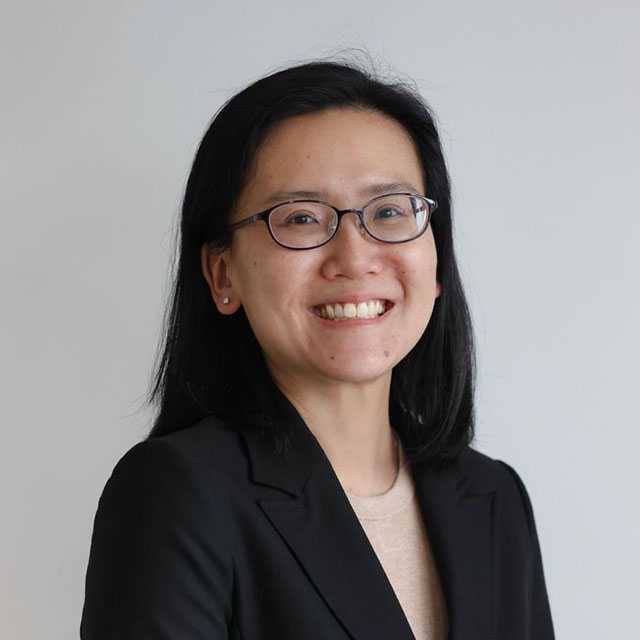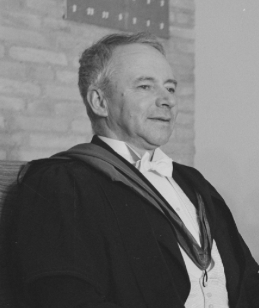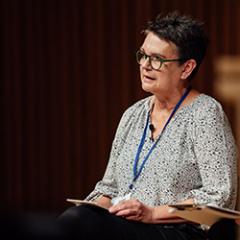The Colin Clark Memorial Lecture Series
Our annual public lecture and most prestigious event
2024 Colin Clark Memorial Lecture by
Professor Jessica Pan, National University of Singapore
The Evolution of Gender in the Labour Market
Presented by Professor Jessica Pan, National University of Singapore, this talk traces the evolution of gender studies, focusing on how academic thinking on this topic has evolved, and how past insights inform current perspectives on addressing the remaining gender disparities in the labour market.
Current academic thinking emphasises two fundamentally different explanations for the existence of gender gaps — essential differences in preferences/skills between men and women, versus gender differences in constraints. Professor Pan discusses insights from economics and social psychology research on the relative importance of these explanations and the implications for economic efficiency. She also provides an in-depth review of recent literature emphasising the role of children and family responsibilities as a major source of differential barriers to labour market success by gender and how this interplays with gender norms and discrimination.
About the speaker - Professor Jessica Pan

Jessica Pan is Professor of Economics, Vice Provost (Graduate Education), and Dean of the NUS Graduate School at the National University of Singapore (NUS). She is also a Research Fellow at the Institute of Labor Economics (IZA) and the Centre for Economic Policy Research (CEPR). She received a bachelor’s in economics from the University of Chicago, followed by an MBA and PhD from UChicago’s Booth School of Business.
Professor Pan’s research focuses on applied topics in labour economics and the economics of education. Her recent work focuses on gender differences in labour market and educational outcomes; international migration and the labour market effects on source and host countries; and topics in labour economics such as discrimination, marriage markets, and the return to education. Her work has been published in several leading peer-reviewed journals, including the Quarterly Journal of Economics, the Review of Economic Studies, the Journal of Labor Economics, and the American Economic Journal: Applied Economics. She currently serves as co-editor of the Journal of Public Economics. She’s also a Fellow of the Econometric Society and Secretary (President-designate) of the Asian and Australasian Society of Labour Economics (AASLE).
About the series

The lecture series is named in honour of the late Dr Colin Clark and his outstanding contribution to the field of economics. Each year a leading expert in economics is invited to present the keynote address.
Dr Colin Clark was a UQ Economics academic whose work on national income accounting was fundamentally important to the development of macroeconomics and to the approach of John Maynard Keynes.
While visiting Australia, he accepted the invitation of Queensland Premier Forgan Smith to work with the government. He reflected on the opportunity in a letter to John Keynes writing the opportunity was "too remarkable an opportunity to be missed for putting economics into practice."
In 1938 he was appointed Government Statistician, Director of the Bureau of Industry, and Financial Advisor to the Queensland Treasury, and provided the State's first set of economic accounts in 1940.
Dr Clark's greatest contribution to economics was his pioneering role in the construction of national accounts.
Previous lectures
Previous speakers
| Year | Speaker | |
|---|---|---|
| Thirty-second | 2023 | Professor Diane Coyle, What has happened to economic progress? |
| Thirty-first | 2022 | Erik Brynjolfsson, GDP-B: Accounting for the value of new and free goods in the digital economy |
| Year | Speaker | |
|---|---|---|
| Thirtieth | 2021 | Matthew Jackson, The economic consequences and dynamics of social networks |
| Twenty-ninth | 2019 | Professor Alicia Rambaldi, International comparison methods |
| Twenty-eighth | 2018 | Professor Daniel Zizzo, Decision making: How to change it and why it matters |
| Twenty-seventh | 2017 | Professor John Quiggin, Unscrambling the Toll Road Egg |
| Twenty-sixth | 2016 | Professor Leslie M. Marx, How to defend against potential collusion by your suppliers |
| Twenty-fifth | 2015 | Professor Alison Booth, Gender in economics: A story in the making |
| Twenty-fourth | 2014 | Professor Dale Jorgenson, Australia and the Growth of the World Economy |
| Twenty-third | 2013 | Professor John Quiggin, National Accounting and the Digital Economy: The Case of the NBN |
| Twenty-second | 2012 | Professor Ross Garnaut |
| Twenty-first | 2011 | Professor Stephen King |
| Year | Speaker | |
|---|---|---|
| Twentieth | 2010 | Professor Erwin Diewert |
| Nineteenth | 2009 | Dr David Gruen, What Have We Learnt? The Great Depression in Australia from the Perspective of Today |
| Eighteenth | 2008 | Mr Gary Banks AO |
| Seventeenth | 2007 | Professor Ian Harper |
| Sixteenth | 2006 | Professor Alan Heston |
| Fifteenth | 2005 | Professor Stan Metcalfe CBE |
| Fourteenth | 2004 | Professor Allan Fels AO |
| Thirteenth | 2003 | Mr Angus Maddison |
| Twelfth | 2002 | Mr Ian Macfarlane |
| Eleventh | 2001 | Dr Peter McCawley, Asian Poverty: What can be Done? |
| Year | Speaker | |
|---|---|---|
| Tenth | 2000 | Professor Bob Gregory |
| Ninth | 1999 | Mr Ted Evans |
| Eighth | 1998 | Mr Ian Castles |
| Seventh | 1997 | Professor Geoffrey Harcourt |
| Sixth | 1996 | Dr Peter Crossman |
| Fifth | 1995 | Professor Warren Hogan |
| Fourth | 1994 | Emeritus Professor H.M. (Ted) Kolsen |
| Third | 1993 | Professor Peter Groenewegen |
| Second | 1992 | Emeritus Professor Heinz Wolfgang Arndt |
| Inaugural | 1991 | Emeritus Professor Jim O.N. Perkins |


